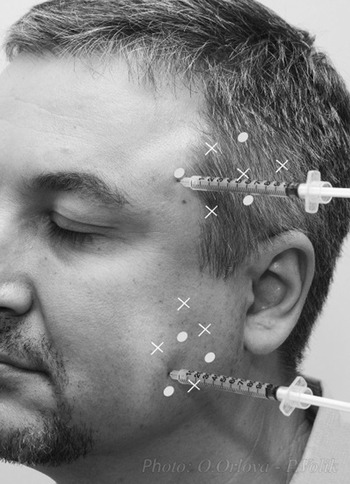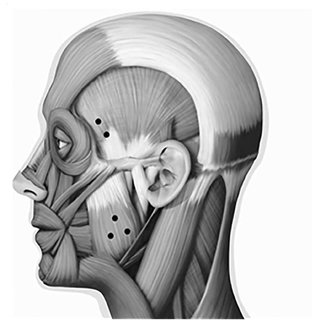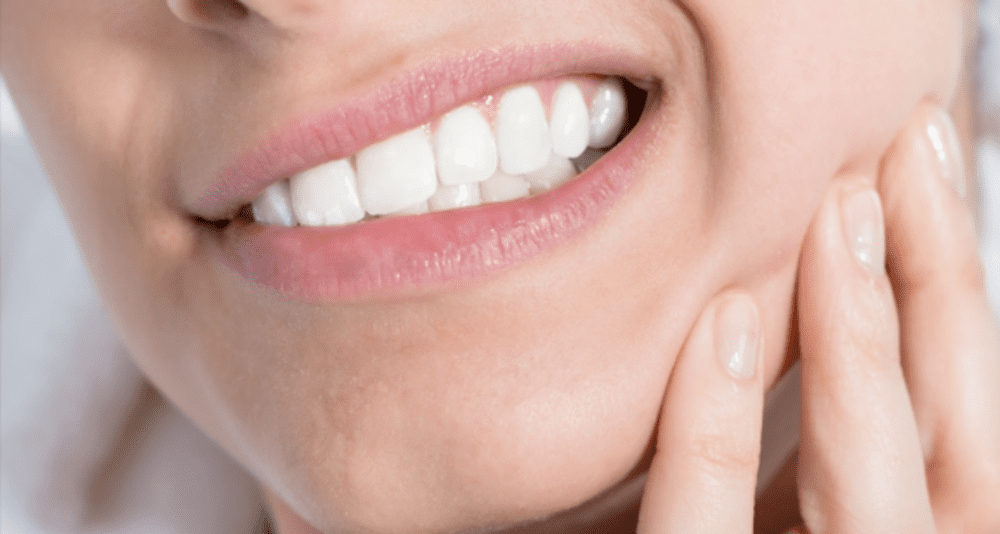Bruxism is a common condition that affects many people around the world. Characterized by teeth grinding or clenching, bruxism can have negative effects on oral health and an individual's quality of life. There are several treatment options available for bruxism, and one of them is the use of botulinum toxin. In this article, we will explore the use of botulinum toxin in the treatment of bruxism, discussing its effectiveness, application procedure, benefits, and possible side effects.
Introduction
Bruxism is a condition that affects both adults and children and is characterized by the involuntary act of grinding or clenching teeth. Bruxism often occurs during sleep, making it a difficult habit to control consciously. Bruxism can be caused by a variety of factors, including stress, anxiety, tooth misalignment or problems with the temporomandibular joint (TMJ).
What is bruxism
Bruxism is a condition in which teeth grinding or clenching occurs, usually during sleep. This involuntary act can have negative consequences for oral health, such as tooth wear, headaches, jaw pain and muscle tension.
Symptoms of bruxism
Some of the most common symptoms of bruxism include:
- Grinding or clenching of teeth.
- Teeth wear.
- Pain or discomfort in the jaw.
- Headaches.
- Muscle tension in the face and neck.
- Difficulty opening or closing the mouth completely.
Causes of bruxism
Bruxism can be caused by a combination of factors, including:
- Emotional stress.
- Anxiety.
- Dental malocclusion (misalignment of teeth).
- Problems in the temporomandibular joint (TMJ).
- Habits of grinding or clenching teeth.
- Side effect of certain medications.
Impact of bruxism on quality of life
Bruxism can have a significant impact on an individual's quality of life. In addition to dental problems and physical pain, bruxism can negatively affect sleep, causing sleep disturbances for the individual or a bed partner. It can also lead to mental health issues such as stress and anxiety due to chronic pain and difficulty managing symptoms.
Conventional treatments for bruxism
There are different treatment options for bruxism depending on the severity of the symptoms and the underlying causes. Some of the conventional treatments include:
- Bite plates or mouth guards.
- Relaxation therapy and stress management techniques.
- Physiotherapy for the jaw.
- Pain relief medications.
- Adjustment of dental occlusion.
- Treatment of problems in the temporomandibular joint (TMJ).
What is botulinum toxin
Botulinum toxin is a substance produced by the bacteria Clostridium botulinum. It is commonly known for its muscle-relaxing properties and is widely used in cosmetic and medical treatments. When administered in adequate doses, botulinum toxin can weaken or temporarily paralyze target muscles.

How botulinum toxin can help in the treatment of bruxism
Botulinum toxin can be used to treat bruxism due to its muscle relaxation properties. When injected into the jaw muscles responsible for grinding or clenching teeth, botulinum toxin weakens these muscles, reducing the intensity and frequency of bruxism.
Botulinum toxin application procedure for bruxism
The procedure for applying botulinum toxin for bruxism involves a few steps. First, the healthcare professional will perform an assessment to determine the appropriate dose of botulinum toxin and injection points. Then, botulinum toxin will be injected into the jaw muscles using a fine needle. The procedure is usually quick and relatively painless.
Efficacy of botulinum toxin in the treatment of bruxism
Studies have shown that the application of botulinum toxin can be effective in treating bruxism. It helps reduce the strength of the jaw muscles involved in bruxism, thus reducing friction and wear on teeth. Additionally, botulinum toxin can alleviate pain associated with bruxism and improve sleep quality.
Benefits of botulinum toxin compared to other treatments
The application of botulinum toxin has some benefits compared to other treatments for bruxism. Some advantages include:
- Long-lasting results: The effects of botulinum toxin can last for several months, which means fewer follow-up appointments may be needed compared to other treatments.
- Non-invasive: The botulinum toxin application procedure is minimally invasive, does not require surgery and generally causes little discomfort.
- Pain reduction: Botulinum toxin can help alleviate the pain associated with bruxism, providing significant relief for patients.

Possible side effects of applying botulinum toxin
Although the application of botulinum toxin is considered safe, there are some potential side effects to consider. Some of the most common side effects include pain or discomfort at the injection site, mild swelling, redness, or temporary bruising. It is important to look for an experienced and qualified professional to perform the procedure and discuss the possible risks and side effects before proceeding.
Who can perform the botulinum toxin application procedure
The botulinum toxin application procedure for the treatment of bruxism must be carried out by a qualified healthcare professional, such as a dentist, doctor or dermatologist. These professionals have the knowledge and experience necessary to administer botulinum toxin safely and effectively.
Recovery and care after the procedure
After applying botulinum toxin, it is important to follow the healthcare professional's instructions to ensure adequate recovery. This may include avoiding activities that increase pressure on the jaw muscles, applying cold compresses to the injection site, and avoiding lying down immediately after the procedure. It is essential to carry out the necessary follow-up with the professional to evaluate the results and make any necessary adjustments.
Conclusion
Botulinum toxin can be an effective option for treating bruxism, offering a minimally invasive approach to reducing symptoms and improving quality of life. However, it is important to consult a qualified healthcare professional to determine whether botulinum toxin is the right option for you given your specific condition and medical history.
Frequently Asked Questions (FAQs)
1. How long does the effect of botulinum toxin last in the treatment of bruxism?
- The effect of botulinum toxin generally lasts three to six months, depending on the individual.
2. Is the application of botulinum toxin for bruxism painful?
- The application procedure is generally painless, as a topical anesthetic is used before the injections.
3. Can botulinum toxin completely resolve bruxism?
- While botulinum toxin can help significantly reduce the symptoms of bruxism, it is important to consider that each case is unique and may require a multifaceted approach to achieve optimal results.
4. Can botulinum toxin be used to treat problems other than bruxism?
- Yes, botulinum toxin is widely used in many areas of medicine and dentistry, including cosmetic treatments and medical conditions such as muscle spasms and migraines.
5. What are the alternatives to the application of botulinum toxin for the treatment of bruxism?
- Alternatives include the use of bite plates, relaxation therapy, adjustment of dental occlusion and pain relief medications, among others. The most appropriate treatment will depend on the severity of the bruxism and the underlying causes.
For healthcare professionals who perform Facial Harmonization
If you are a healthcare professional and want to deepen your knowledge about the use of botulinum toxin in the treatment of bruxism, a great option is to do the Botulinum Toxin Online Course offered by Full Face Academy. In this course, you will have access to comprehensive and updated content on the application of botulinum toxin in different areas, including the treatment of bruxism. Through theoretical and practical classes taught by renowned experts, you will be able to improve your skills and offer your patients effective and safe treatment. Don't miss the opportunity to stand out in the healthcare field and become a botulinum toxin specialist.
Tips for Applying Botulinum Toxin for Bruxism
- Detailed evaluation: Perform a complete patient assessment, including medical history, symptoms, clinical examination and dental occlusion analysis. This will help determine the severity of the bruxism and identify the jaw muscles involved.
- Suitable injection points: Identify suitable injection points in the jaw muscles responsible for teeth grinding or clenching. It is important to have accurate anatomical knowledge to avoid damage to adjacent structures.
- Appropriate dose: Determine the correct dose of botulinum toxin based on the intensity of symptoms and the patient's individual response. Avoid excessive doses that may lead to unwanted effects.
- Proper injection technique: Use a precise and safe injection technique. Be careful not to cause tissue damage and avoid leaking botulinum toxin to unwanted areas.
- Post-treatment follow-up: Carry out appropriate follow-up with the patient to evaluate the results and make adjustments if necessary. Be available to answer questions and offer support throughout the treatment process.




